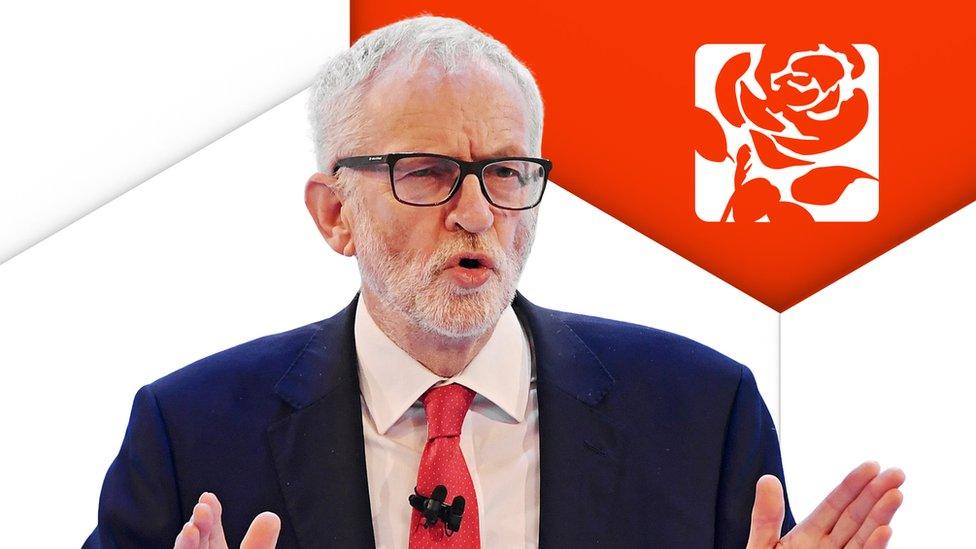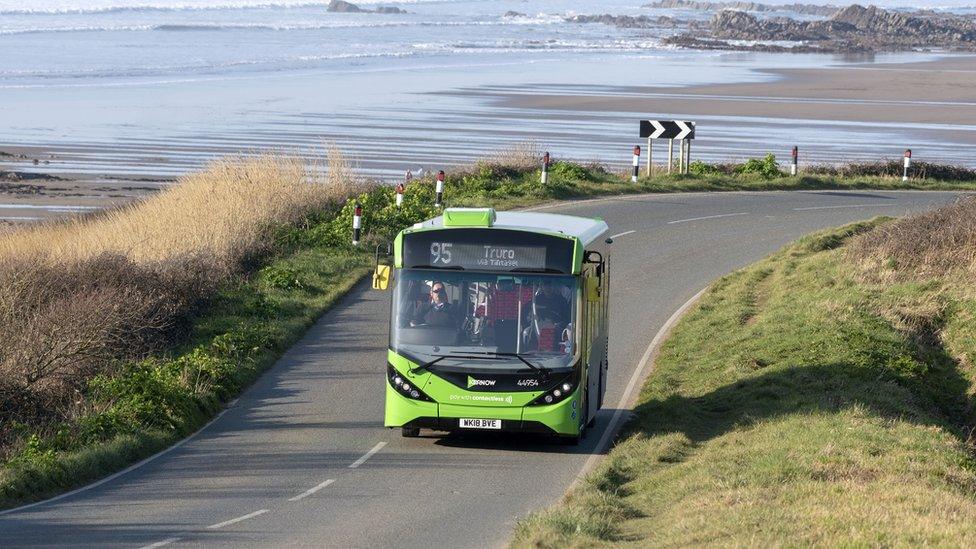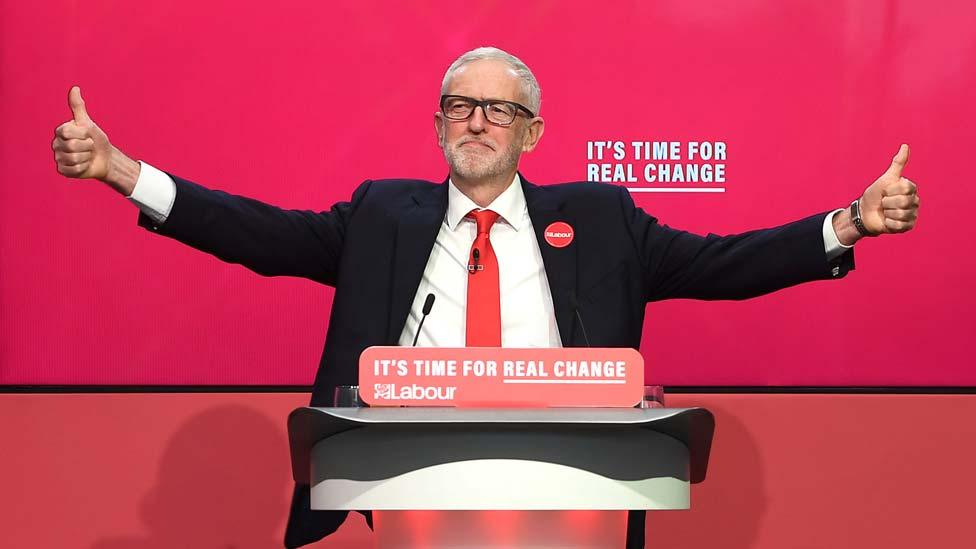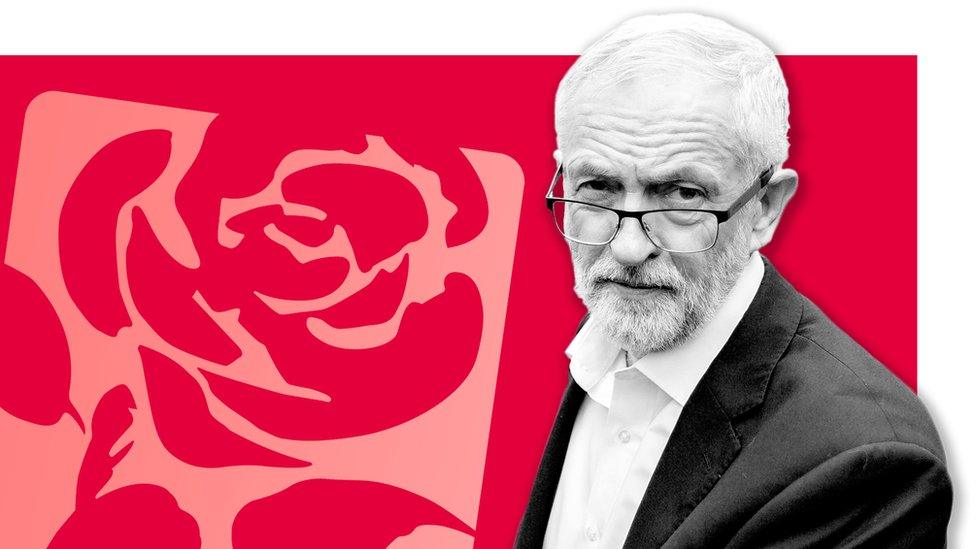Labour Party manifesto 2019: 12 key policies explained
- Published

The Labour Party has launched its 2019 election manifesto, with the slogan It's Time For Real Change. It sets out the policies the party aims to introduce should it win the election.
The full document, external runs to 105 pages. But what are the promises that will grab the public's attention, and potentially win over voters on polling day, 12 December?
1. Increase health budget by 4.3%
The party also wants to cut private provision in the NHS.

The 4.3% per year rise is at the top end of what health think tanks and analysts have been calling for. Labour would also have to find money to cover revenue lost from its pledges to scrap prescription, basic dentistry and hospital car parking charges.
A key section covers Labour's plan to cut private provision in the NHS, which currently accounts for about 7% of the health budget in England. This would clearly involve outsourced contracts, for example for physiotherapy and community health.
But will NHS hospitals suddenly see their waiting lists balloon as a result of operations outsourced to private hospitals being brought back into the public sector? And are these pledges longer-term aspirations or shorter-term priorities?
Healthcare is devolved so these policies would apply to England only, but the devolved nations would benefit from the funding.
"Rail, mail, water and energy into public ownership": Jeremy Corbyn launches Labour's manifesto
2. Hold a second referendum on Brexit
Labour will renegotiate a new Brexit deal within three months, and hold a referendum on the deal or Remain within six months

The short section called "The Final Say on Brexit" only begins on page 89 of this manifesto. The other main UK-wide parties have simple slogans, but Labour's policy is more complicated and doesn't fit on a manifesto cover or the side of a bus.
It promises to renegotiate a new Brexit deal within three months, based on a new UK-EU customs union and close EU single market alignment. It would also give EU nationals living and working in the UK the automatic right to stay. That deal would then be put to a legally-binding referendum within six months, alongside the option to remain in the EU.
Labour wants to appeal to both Leavers and Remainers and to give the people the final say. It would implement the referendum result immediately. But Mr Corbyn will not say how he would vote in it. And that continues to divert attention away from his other practical policies.
This policy would apply to the whole of the UK.
Update: On 22 November Jeremy Corbyn revealed that he would remain neutral if there was another referendum.
3. Raise minimum wage from £8.21 to £10
It would boost anyone over the age of 25 earning the minimum wage, known as the National Living Wage.

The Conservatives had already announced the living wage would gradually increase to £10.50 over the next six years. Labour is now promising more and faster, with all workers over 16 years old getting £10 an hour within the next year. It is an attempt to tackle the growing issue of in-work poverty.
It's cheaper than other policy announcements because employers, rather than government, mostly pay the wages, but it's a big jump for them to swallow in a very short timeframe. Labour is also promising extra measures to boost workers' rights, including longer maternity and paternity pay, and guaranteed bereavement pay.
This would apply to the whole of the UK.
4. Stop state pension age rises
Pension age would remain at 66 while retirement ages for those in arduous and stressful jobs will be reviewed.

Not long ago, government number-crunchers suggested workers under 30 may not receive a state pension until they turned 70. So Labour's plan to freeze the state pension age at 66 for the foreseeable future has been called a "gargantuan promise" by one analyst.
It would cost billions of pounds more than most recent government plans to raise the age for men and women to 68 by 2039. Yet, it would clearly be popular among middle-age voters.
For existing pensioners, the so-called triple-lock - linking annual state pension rises to the highest of average earnings, the cost of living, or 2.5% - would continue, as all the major parties have promised. There are also pitches to specific groups. The so-called Waspi women - born in the 1950s and furious with "surprise" pension age changes - are promised compensation.
This would apply to the whole of the UK.
5. Introduce a National Care Service
Provide "community-based, person-centred" support in England, including free personal care.

Labour's plan for a comprehensive National Care Service is bold. The question will be whether their costings stand-up to scrutiny. That is not just about the affordability of the plan now, but also its cost as the population ages. At the heart of the policy is free personal care for older people who need help with day-to-day tasks like washing, dressing and medication.
This system already operates in Scotland, but in England, the idea was rejected 20 years ago by the then-Labour government as too expensive. There are also promises to double the number of people receiving help, so easing NHS pressures. Plans to reform the care system have ended up as political footballs in past elections - the challenge for Labour will be building a consensus around their ideas.
Health and social care is devolved. This would apply to England only.


6. Bring forward net-zero target
To put the UK on track for a net-zero carbon energy system within the 2030s.

The date for reducing carbon emissions to effectively zero is much sooner than the government envisages. It's not quite the neat formulation of "net zero" by 2030 that many party activists wanted (and the Green Party has promised). Instead, in one line, the document talks of achieving "the substantial majority of our emissions reductions" by 2030.
In another, it mentions putting the UK "on track for a net-zero carbon energy system within the 2030s". Presumably that creates enough stretch room to get to 2040 - five years earlier than the Lib Dems' target year and 10 years earlier than the Tories.
This policy would apply to the whole of the UK

CONFUSED? Our simple election guide, external
POLICY GUIDE: Who should I vote for?, external
BREXIT: Where do the parties stand?

7. Nationalise key industries
The party will nationalise the so-called big six energy firms, National Grid, the water industry, Royal Mail, railways and the broadband arm of BT.

Labour's manifesto is one of the most radical proposed overhauls of the way companies are owned and run in decades. It would mark the biggest ownership takeover by the state since the nationalisations that occurred after the outbreak of World War Two.
Those companies that Labour does not want to own and operate themselves will also face a huge change in the way they are supervised by government. The current inhabitants of company boardrooms are very aware life would be very different under a Labour government.
This policy would apply to the whole of the UK.
8. Scrap Universal Credit
Start work on a new benefits system to replace controversial benefit.

Labour's plan to scrap Universal Credit deals with its immediate concerns about the much-criticised benefit. However, the party does not say what it would replace it with. Universal Credit was originally introduced to tackle the complexity and unfairness of the existing benefits system. But many of the accompanying changes became linked to austerity measures like benefit caps.
Going back to the system which Universal Credit replaced would create its own problems. And its introduction shows just how difficult it can be to devise a new system that works. Labour has said it will start work on ideas for a new system immediately, but getting that right is likely to take years.
This would apply across the UK.
9. Abolish private schools' charitable status
There are also plans to scrap tuition fees and bring back maintenance grants for the poorest students.

The controversial policy of abolishing private schools, voted through at conference, is being parked for the moment. But there is a firm commitment to remove their charitable tax status.
The big pledge, as in 2017, is the abolition of tuition fees. Universities will worry that the commitment to find public money to replace them could come under pressure if public finances tighten. Scrapping tuition fees will benefit the wealthiest students most. Maintenance grants would be restored for the poorest. The combined cost is estimated at £12bn a year.
On school funding, Labour's promise goes further than the Conservatives and Lib Dems. By 2022-2023, spending would be £10.5bn higher in cash terms, which would reverse cuts (and then some) made since 2010.
Education is devolved. This would apply to England only.


10. Free bus travel for under-25s
Labour will also bring the railways back into public ownership.

Labour says it will bring the railways back into public ownership when the current rail franchises expire. The party says that means there will be no cost to the government as the contracts will have ended. However, it is unclear who will then own the trains and the associated costs.
The use of driver-only operated trains will also be stopped, having caused years of disruption because of industrial action by disgruntled staff. Industry estimates this would cost more than £200m a year. And the bus system will fall under council control again while thousands of routes that have been cut will be reinstated. Free bus travel is also promised for under-25s. The costs for this are not provided in the manifesto.
Labour promises a £250bn green transformation fund; HS2 will be built and extended into Scotland and long-suffering train passengers in the north of England will get "Crossrail for the North".
Transport is partly devolved. Free bus travel for under-25s would apply to England only, while infrastructure projects and renationalisation would apply across the UK.
11. Give EU nationals the right to remain
It will mean EU citizens in the UK no longer have to apply to continue living and working in the country.

The settlement scheme was set up by the Conservative government to formalise the rights of EU citizens to continue living and working in the UK after Brexit. Ministers have claimed the system is working well with applications from around 2.45 million people so far.
But that means almost one million EU nationals have yet to sign up, raising concerns that some who have difficulty proving they've been in Britain could be at risk of deportation. Labour's proposal would end the worry and uncertainty for EU citizens in Britain, but it could create problems for border staff after Brexit in distinguishing between those who've already been living in the UK and new arrivals who may have certain restrictions.
This policy would apply to the whole of the UK.
12. Build 100,000 council homes a year
Start a rapid programme of homebuilding.

Labour's promise to build 100,000 council homes and 50,000 housing association properties a year by the end of the five-year Parliament marks a rapid change. Building on this scale has not been seen for 40 years. The UK's population is getting older and one in five people has a disability, so the type of homes proposed will face close scrutiny. There are also questions over the availability of construction workers to build them.
More people have rented from private landlords than social ones since 2013. Many are aged under 35. For them, rent controls would aim to keep down costs by linking rent rises to inflation (the cost of living) and giving city authorities the power to be even stricter. This will reignite debate over their effectiveness. The plan for a new Department for Housing shows how central this area is to Labour's key policies.
Housing is devolved so this policy would apply to England only.
To find out more read our simple guide to the Labour Party
What do the other parties offer?


What are the parties promising you?
Here's a concise guide to where the parties stand on key issues like Brexit, education and the NHS.
Correction 24th February 2020: This article has been amended to clarify that there is some cost to the government, in terms of wages, from introducing the living wage.
- Published22 November 2019

- Published21 November 2019
- Published14 November 2019
